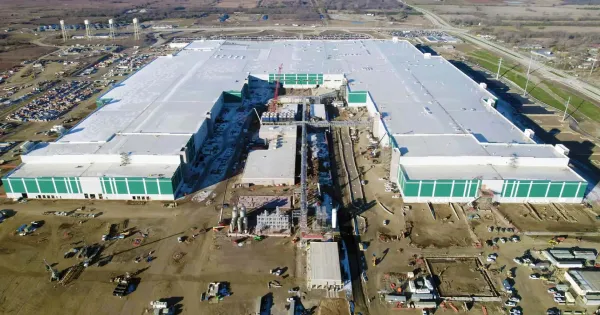(10 Key) Leadership Skills You Need to Know

Leadership is often seen as the driving force behind successful organizations, teams, and individuals. While many view leadership as a natural talent, the truth is that it can be developed with the right mindset, approach, and tools. Whether you are leading a large corporation, a small team, or even just looking to enhance your personal leadership abilities, certain key skills are essential for success.
Here are the 10 key leadership skills you need to know and how mastering them can set you apart in any professional or personal context.
Skill 1) Effective Communication

Effective communication is the cornerstone of great leadership. Whether you're addressing a team, clients, or stakeholders, how you convey your message significantly impacts the outcome. Strong leaders are not just good at speaking; they are also exceptional listeners. Effective communication involves the ability to articulate ideas clearly, convey expectations, and engage in active listening.
Key Aspects of Effective Communication:
- Clarity: Avoid ambiguity in your messages. A leader must be able to distill complex ideas into clear and concise statements.
- Listening: Active listening helps leaders understand the concerns, suggestions, and ideas of others. It creates trust and openness.
- Non-verbal communication: Body language, eye contact, and gestures play an important role in how messages are received. Good leaders are aware of their non-verbal cues.
- Feedback: Giving and receiving constructive feedback is crucial for growth, both for the leader and the team.
How to Improve:
- Practice active listening by giving full attention when others speak, summarizing their points, and asking questions for clarity.
- Be mindful of your body language and facial expressions during conversations.
- Develop the habit of asking for feedback to improve communication.
In leadership, communication is not just about talking; it’s about ensuring the message is understood and acting on it. Leaders who master communication skills can inspire, motivate, and resolve conflicts more efficiently.
Skill 2) Emotional Intelligence

Emotional Intelligence (EQ) refers to the ability to recognize, understand, and manage one’s own emotions while being attuned to the emotions of others. High emotional intelligence allows leaders to build stronger relationships, reduce stress, and defuse conflicts. EQ is essential for developing empathy and creating a positive work environment.
Key Components of Emotional Intelligence:
- Self-awareness: Understanding your own emotions and how they affect your behavior and interactions.
- Self-regulation: The ability to manage emotions in a controlled way, especially in stressful situations.
- Empathy: Recognizing and considering the emotions of others, leading to stronger interpersonal connections.
- Motivation: Self-motivation and encouraging others to stay focused on goals, even in challenging times.
How to Improve:
- Practice mindfulness techniques to increase emotional awareness and regulation.
- Actively work on empathy by putting yourself in others' shoes and considering their perspectives.
- Seek feedback from trusted colleagues or mentors on how you handle emotionally charged situations.
Leaders with high emotional intelligence are often more respected and trusted, as they can navigate the complexities of human relationships with ease and grace.
Skill 3) Decision-Making

Effective leaders are decisive. The ability to make well-informed and timely decisions can be the difference between success and failure. Good decision-making doesn’t mean making decisions on a whim; it involves critical thinking, risk assessment, and the consideration of long-term impacts.
Key Elements of Decision-Making:
- Analytical Thinking: Assessing all available information and considering multiple viewpoints before making a decision.
- Problem-Solving: Leaders should be able to tackle challenges head-on, finding solutions that are effective and sustainable.
- Decisiveness: Once all information is considered, leaders must commit to a decision and act quickly.
How to Improve:
- Develop your critical thinking skills by practicing problem-solving and engaging with complex scenarios.
- Use decision-making frameworks such as pros and cons lists or SWOT analysis to better structure your thought process.
- Don't shy away from seeking advice or input from trusted colleagues or mentors when faced with a tough decision.
Leaders who can make sound decisions consistently will earn the trust and confidence of their teams, leading to a more cohesive and effective work environment.
Skill 4) Adaptability

Leaders must be adaptable. This skill allows leaders to pivot quickly when faced with unexpected challenges or opportunities. Adaptability also involves being open to new ideas, approaches, and solutions, ensuring that the organization remains innovative and competitive.
Key Aspects of Adaptability:
- Open-mindedness: Being willing to listen to new ideas and different perspectives.
- Resilience: Handling setbacks or changes without losing momentum or morale.
- Innovation: Encouraging creative thinking and exploring unconventional solutions.
How to Improve:
- Create a growth mindset by viewing challenges as opportunities to learn and grow.
- Practice flexibility by being open to feedback and adjusting your approach based on new information or circumstances.
- Stay informed about industry trends and be ready to implement changes when needed.
Leaders who are adaptable can thrive in uncertain environments, guide their teams through periods of change, and capitalize on emerging opportunities.
Skill 5) Vision

A strong vision provides direction and purpose. Leaders must not only have a clear vision of where they want to go but also effectively communicate that vision to inspire and motivate their teams. A well-defined vision helps in setting goals, aligning strategies, and ensuring that every team member understands their role in the bigger picture.
Key Aspects of Visionary Leadership:
- Clarity: The vision should be easy to understand and communicate.
- Inspiration: A good leader’s vision inspires the team to strive for success.
- Goal-Oriented: The vision serves as the foundation for setting both short-term and long-term goals.
How to Improve:
- Spend time reflecting on your long-term goals and the direction you want to take your team or organization.
- Learn to articulate your vision in a way that resonates with others and encourages them to buy in.
- Regularly revisit your vision to ensure it aligns with the evolving landscape of your industry or organization.
Visionary leaders can steer their teams toward success by keeping everyone focused and motivated on achieving a common goal.
Skill 6) Delegation

Delegation is a crucial leadership skill that involves assigning tasks and responsibilities to others. Effective delegation is not about offloading work but ensuring that the right tasks are given to the right people to maximize productivity and efficiency.
Key Elements of Delegation:
- Trust: Leaders must trust their team members to complete tasks effectively.
- Clarity: Delegated tasks should come with clear instructions and expectations.
- Empowerment: Allowing team members to take ownership of tasks boosts their confidence and create a sense of responsibility.
How to Improve:
Identify your team’s strengths and weaknesses so you can delegate tasks to the right individuals.
- Set clear objectives and expectations when assigning tasks to ensure understanding.
- Provide support when needed, but avoid micromanaging to encourage autonomy and innovation.
Great leaders know that they cannot do everything themselves. By effectively delegating, they empower their teams to succeed and create a more balanced workload for themselves.
Skill 7) Accountability

Accountability is essential in leadership. It refers to taking responsibility for your actions and decisions, as well as ensuring that your team is held accountable for their work. Leaders who demonstrate accountability build a culture of trust, transparency, and high performance.
Key Components of Accountability:
- Ownership: Leaders should take ownership of both successes and failures.
- Transparency: Being open and honest about outcomes creates trust and respect.
- Responsibility: Holding yourself and others responsible for meeting deadlines, achieving goals, and upholding standards.
How to Improve:
- Lead by example. Own your mistakes and demonstrate how to learn from them.
- Set clear expectations for your team regarding performance and deliverables.
- Create a culture of accountability by encouraging feedback and open discussions on performance and goals.
Leaders who prioritize accountability cultivate an environment where team members are more likely to take initiative, own their tasks, and strive for continuous improvement.
Skill 8) Conflict Resolution

Conflict is inevitable in any group setting, and effective leaders must be able to navigate disagreements in a way that creates positive outcomes. Leaders with strong conflict resolution skills can mediate disputes, encourage open communication, and ensure that conflicts lead to growth rather than disruption.
Key Elements of Conflict Resolution:
- Active Listening: Understanding each party’s perspective is crucial in resolving disputes.
- Objectivity: Stay neutral and avoid taking sides when managing conflicts.
- Problem-Solving: Find a solution that addresses the root of the conflict and satisfies all parties involved.
How to Improve:
- Develop your mediation skills by learning to remain calm and collected during heated situations.
- Create a work environment that encourages open communication and provides a platform for grievances to be aired before they escalate.
- Practice empathy to understand both sides of a conflict and work towards a compromise or resolution.
Effective conflict resolution not only resolves problems but can also strengthen relationships and create a more harmonious team dynamic.
Skill 9) Empowerment

Empowerment involves giving your team the tools, authority, and autonomy to succeed. Empowering leaders encourage their teams to take initiative, make decisions, and take ownership of their work, which leads to higher levels of engagement, creativity, and productivity.
Key Elements of Empowerment:
- Autonomy: Allow team members to take control of their tasks and make decisions within their areas of responsibility.
- Support: Provide the necessary resources, tools, and training to help your team succeed.
- Encouragement: Offer positive reinforcement and recognize achievements to boost morale.
How to Improve:
- Build trust within your team by giving them autonomy over key tasks and decisions.
- Offer regular feedback and support without micromanaging.
- Recognize and celebrate achievements to create a sense of accomplishment and ownership.
Empowering your team not only increases their confidence and skill set but also frees you to focus on more strategic leadership responsibilities.
Skill 10) Integrity

Integrity is the foundation of good leadership. A leader with integrity adheres to moral and ethical principles, leading by example and building trust with their team. Leaders who demonstrate integrity are respected and trusted, as their actions consistently align with their words.
Key Elements of Integrity:
- Honesty: Being transparent and truthful, even when it’s difficult.
- Ethics: Adhering to a strong set of values and principles in all decision-making processes.
- Consistency: Demonstrating reliability and fairness in all interactions.
How to Improve:
- Be transparent with your team about your decision-making processes and motivations.
- Practice ethical decision-making by considering the long-term consequences of your actions.
- Hold yourself to the same standards you expect from others, ensuring consistency between your actions and values.
Leaders with integrity set the tone for the organization’s culture, encouraging trust and respect from their teams and external stakeholders.
Final Thoughts
Leadership is a multifaceted role that requires continuous learning and self-improvement. By honing these 10 key skills—Effective Communication, Emotional Intelligence, Decision-Making, Adaptability, Vision, Delegation, Accountability, Conflict Resolution, Empowerment, and Integrity—you can position yourself as a capable and inspiring leader. These skills not only improve your effectiveness as a leader but also enhance your ability to positively influence and guide your team toward success.
Whether you're leading a small project or an entire organization, focusing on these core leadership abilities will allow you to cultivate a motivated, empowered, and cohesive team. Remember, leadership is not a destination but a journey, and mastering these skills is an ongoing process.
Key Takeaways
| Leadership Skill | Key Takeaway |
|---|---|
| 1. Effective Communication | Be clear, concise, and listen well to ensure everyone understands and feels heard. |
| 2. Emotional Intelligence | Understand and manage your emotions while empathizing with others. |
| 3. Decision-Making | Make informed, confident decisions quickly by analyzing the situation. |
| 4. Adaptability | Stay flexible and open to change to guide your team through challenges. |
| 5. Vision | Have a clear goal and inspire your team to work toward it together. |
| 6. Delegation | Trust others by assigning tasks to the right people to increase efficiency. |
| 7. Accountability | Take responsibility for your actions and encourage others to do the same. |
| 8. Conflict Resolution | Resolve conflicts fairly and listen to all sides to create a better team environment. |
| 9. Empowerment | Give your team the freedom and support to make decisions and take ownership of their work. |
| 10. Integrity | Lead by example with honesty and strong ethics to earn trust and respect. |





